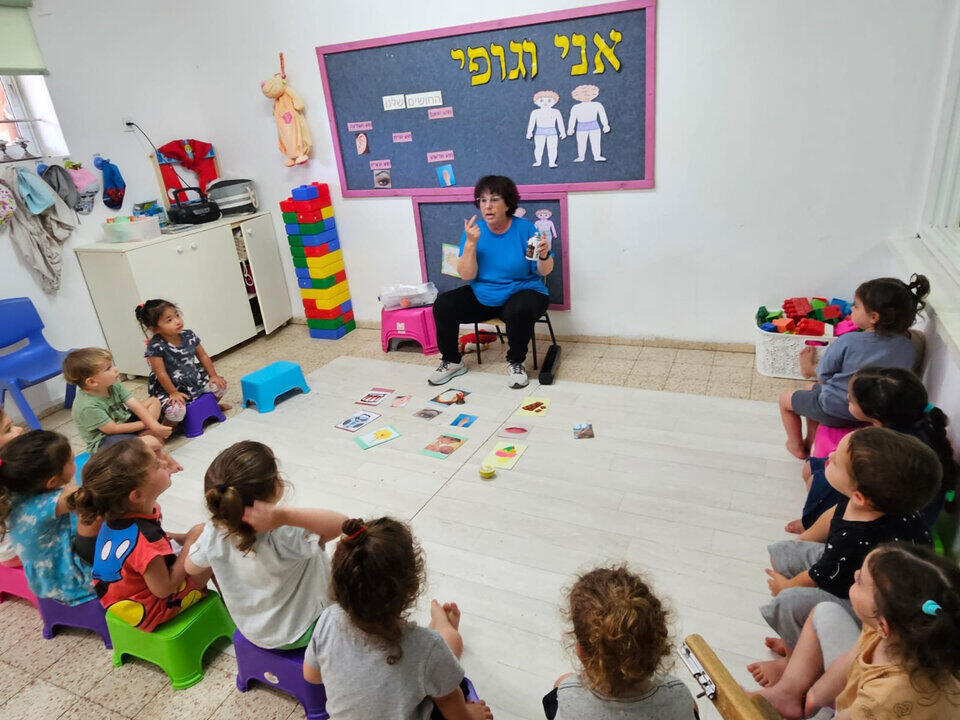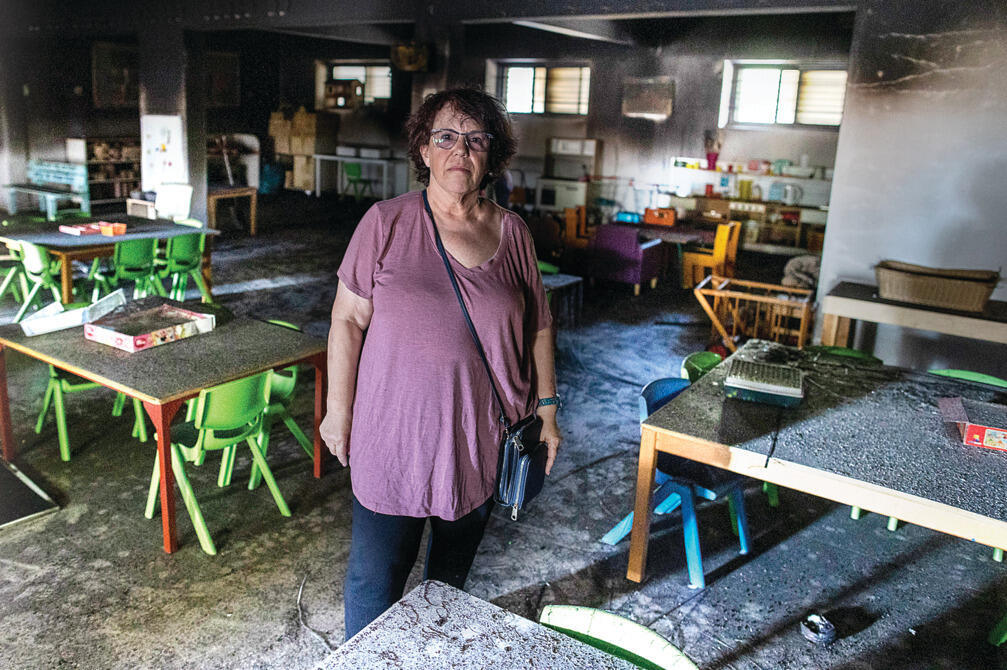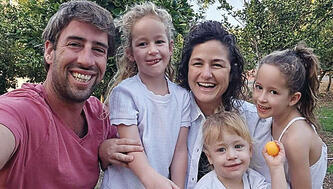Getting your Trinity Audio player ready...
Roxana Salimson, a 58-year-old kindergarten teacher, raised many children in Kibbutz Nir Oz. Everyone knows her there, and she knows everyone. Today, she’s still trying to come to terms with the disaster and devastation that occurred in Nir Oz.
More stories:
When asked if she knows children or parents who were murdered or abducted, she answered immediately: "I know them all, I raised them all."
Roxana has been a kindergarten teacher in Nir Oz for over 30 years, ever since she made Aliyah from Argentina with her husband, Tato. On Sunday, she returned to the kibbutz for the first time since Oct. 7.
The couple came to collect items from their looted home, which had been riddled with bullets. Soon, along with the entire kibbutz community, they’ll move to a temporary complex in Kiryat Gat. In the meantime, they’re staying in a hotel in Eilat, where schools and kindergartens began operating.
The return of a routine for children encourages her somewhat, but on the inside, Roxana is shattered and aching. Many of the children she nurtured and their parents were killed or abducted, and she can't stop thinking about them.
"We left for the kibbutz’s war room only after being locked in our protected room for nine hours, and everything started to become clear. Suddenly, I heard about a family that was murdered, then another one, and then about a family that was kidnapped or missing. It continued from there. One family after another. I couldn't bear this pain anymore. All of the children I helped raise, their parents, were gone," she recounted.
After the kibbutz was attacked by Hamas terrorists, Roxana and Tato were locked in their protected room. Tato held the door handle while the terrorists roamed around their home, shooting in every direction and looting what they could.
"For nine hours, Tato held onto the handle and didn't let go. Three times they tried to open the door, likely in an attempt to kill us. They failed. In the end, we managed to escape through the window, from there we were rescued. After that, we arrived at the kibbutz’s war room, and from there, all of us, parents and small children, went to the Rimon kindergarten where I work.”
“There were many people who were injured, but mainly children and frightened parents. The children just didn't leave them. I started to bring out coloring sheets, colored pens, and crayons for them to have something to do. I approached the parents and hugged them. There was nothing more I could do. They were in such a difficult emotional state. But because they were in the kindergarten, in a place that was familiar to them, it somewhat helped," she said.
Even though Roxana planned to return to her home to collect her belongings and leave, she couldn't help but visit the kibbutz’s kindergartens, one of which had burned down. "I can't believe there are people who do such things," she said as she entered the charred building.
"It pains me to see the kindergarten like this. It's the most innocent and pleasant place to be in, and now everything in it is burnt and ruined, but the children’s delightful creations are still hanging on the walls."
Afterward, she went into the Rimon kindergarten, and looked at the pictures, especially the picture of 4-year-old Omer, and his 6-year-old sister Arbel Siman Tov, who were murdered along with their entire family – their parents Tamar Kedem-Siman Tov and Yonatan ‘Johnny’ Siman Tov, and Shahar, Arbel's twin sister.
"On Friday, the day before the disaster, we welcomed Shabbat here. We talked about the Sukkot holiday and the joy of Simchat Torah. The children said 'Shabbat Shalom' and never returned. Each one of them, these sweet children, is a whole world in themselves. They need to return home, to the kindergarten, and to their friends."






